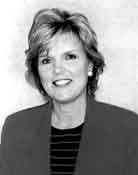 | The Reverend Doctor Cathy Northrup was born in Ft. Meade, MD, and was raised in a variety of places in the United State and Germany, as her father was in Counter Intelligence with the Army. She graduated summa cum laude, Phi Beta Kappa, from Hamline University in St. Paul, MN, with a double major in English and Religion. She graduated from Georgetown Law Center in Washington, DC, and practiced law with the Federal Reserve Board for a number of years before attending Union Theological Seminaryin Richmond, VA. She graduated from Union, and served several churches in North and South Carolina, at the same time obtaining her Doctor of Ministry from Princeton Theological Seminary in Princeton, NJ. Dr. Northrup is currently the Pastor/Head of Staff of First Presbyterian Church, Wichita, KS. She is married and has two black Labrador dogs who were rescued from abusive situations. You can contact Dr. Northrup at cnorthrup@firstpresbywichita.org or by phone at (316) 263-0248, ext. 26. |
Religion
2006-12-01 09:28:00
Is the soul AND the body in Heaven or Hell before the end of time?
In Luke 16:19, Jesus speaks a parable about the rich man and the poor man Lazarus. At the end of this parable, after both die, the rich man sees Lazarus in Abraham’s bosom, and begs Abraham to allow Lazarus to dip his finger in water to cool the rich man’s tongue. I know that at death, the soul separates from the body. The soul is judged and goes to eternity. The body goes to the grave. At the end of time, both the body and soul will be reunited and spend eternity together, either in eternal bliss or in eternal torment. Since the end of time has yet to arrive, how could the rich man want his tongue to be cooled, when the only part of his being in hell is his soul?
ANSWER:I understand this parable as to be more about "reversal," as is common in Luke (see Fred Craddock, Luke), than about what happens after death. Craddock notes that this parable is addressed to the Pharisees and their love of wealth (see Luke 16:14). The parable criticizes them for not sharing with the poor, and thus, their fortunes are "reversed" after death.
Regarding what happens when we die, there are arguably two lines of thought in the Bible. In one, the Bible indicates that when we die, we body and soul) "sleep" until the resurrection, but we are not aware of the passage of time while we are "sleeping." When we "wake," we are in the presence of God, and it seems immediate, as Paul writes, "in the twinkling of an eye" (1 Corinthians 15:52). In another line of thought, after death, we are actually immediately in the presence of God. There is a tug here, however, in the New Testament between the Greek idea of "immortality of the soul" and the Hebrew idea that people are one whole being with "parts" that are not divided.
Jesus' statement to the thief on the cross, "Truly I tell you today you will be with me in paradise" can support either of the Biblical lines of thought. It depends on where one puts the comma; is it "Truly I tell you today, you will be with me in paradise," or "Truly I tell you, today you will be with me in paradise"?
I find it most helpful to trust God in these matters. I would urge you to read 1 Corinthians 15, in which Paul explains that we cannot fully understand what happens at death and resurrection. I also find it helpful to remember the words of a seminary professor who told me once that we shouldn't "speculate about the details in heaven" but focus rather on living lives of grateful response to God's love and trusting in his promises.


